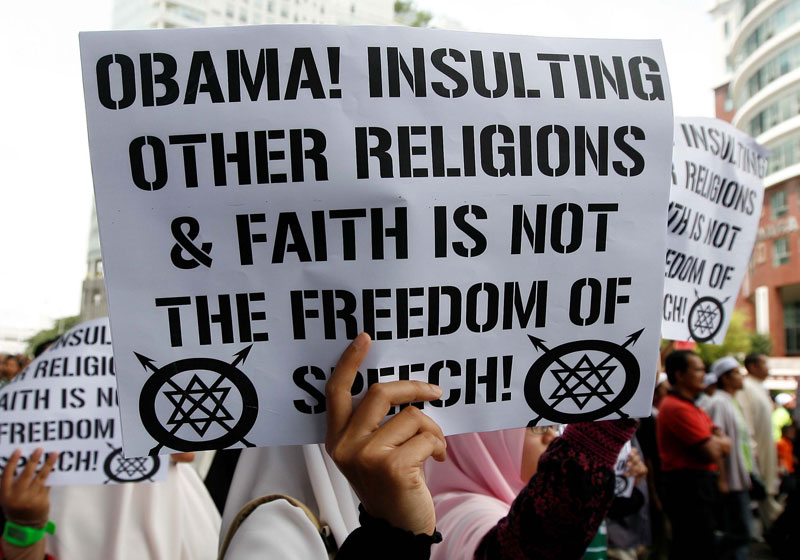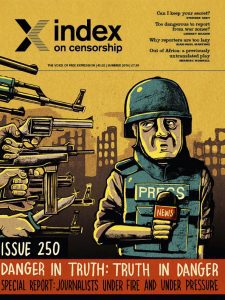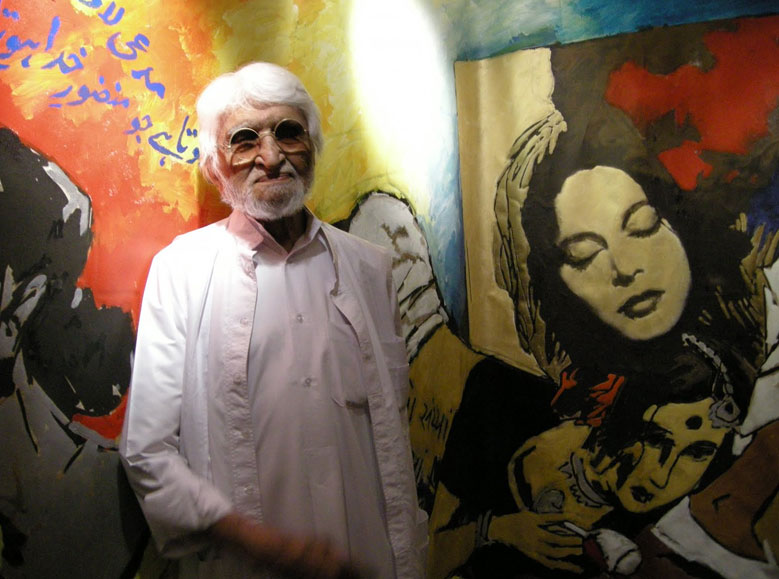9 May 2013 | Politics and Society
The Economist Intelligence Unit (EIU) recently released the Democracy Index for 2012, and it paints a bleak picture of where we are with democracy around the world today.
“There has been a decline in some aspects of governance, political participation, and media freedoms, and a clear deterioration in attitudes associated with, or conducive to, democracy in many countries, including in Europe.”
The EIU measures how democratic countries are based on five categories: “electoral process and pluralism; civil liberties; the functioning of government; political participation; and political culture”. Norway, Sweden, Iceland, and Denmark have topped this year’s list, which ranks 165 countries and two territories. Even though half of the global population live “in a democracy of some sort”, the EIU reports that previous gains in democratisation have been eroded in the past few years.
The global financial crisis has aggravated this decline, and this can be felt in many parts of the world. According to the EIU, the economic crisis has been a double-edged sword: in some ways it can “undermine authoritarianism”, but it can also help reinforce it. While in some cases the economic crisis has emboldened protesters — it has also left governments feeling “vulnerable and threatened”, which has meant a rise in attempts to restrict freedom of expression and control the media.
This isn’t restricted to more authoritarian countries. The report notes a “noticeable decline in media freedoms, affecting all regions to some extent, has accelerated since 2008.” A rise in unemployment and a lack of job security has helped create a “climate of fear and self-censorship among journalists in many countries.”
Perhaps challenges in Latin America and the Middle East and North Africa — particularly in younger democracies, are no surprise. But there have been some startling changes in more well-established democracies. Developed western countries have seen a decline in political participation, as well as restrictions on civil liberties in the name of security.
The report shows a troubling situation in Europe, as confidence in the region’s public institutions continues to drop. In Eastern Europe, the scores of ten countries have declined. The scores of Western European countries since 2008 have shown the impact of the economic crisis. Out of 21 countries, 15 have had a decrease in their scores between 2008 and 2010.
The United Kingdom moved up from a score of 18 to 16 this year. The EIU pins the UK’s score on a “deep institutional crisis”, and says that trust in the government is “at an all-time low.” The United States, on the other hand, moved down from 19 to 21 this year, as the report says that the country’s democracy “has been adversely affected by a deepening of the polarisation of the political scene and political brinkmanship and paralysis.”
If the Democracy Index tells us anything, it’s that the economic crisis definitely plays a role in how healthy a democracy is. The United Nation’s International Labour Office now predicts that youth unemployment will only continue to rise in the next five years — estimating that today’s youth will be approximately “three times more likely than adults” to face unemployment. At the start of the year, the World Bank predicted an “uncertain future” for the global economy; with limited growth in the coming years. As countries scramble to cope with economic woes, I think that this report is an important reminder that we shouldn’t lose sight of freedom of expression.
1 Mar 2013 | News, Religion and Culture
[vc_row][vc_column][vc_column_text]While they exist harmoniously on paper, free expression and religion often conflict in practice, and free speech is often trampled in the name of protecting religious sensibilities — whether through self-censorship or legislation that censors.
History offers many examples of religious freedom being repressed too. Both free expression and religious freedom need protection from those who would meddle with them. And they are not necessarily incompatible.
Over 200 years ago, the United States’ founding fathers grouped together freedom of worship and freedom of speech. The US Constitution’s First Amendment, adopted in 1791, made sure that the Congress couldn’t pass laws establishing religions or prohibiting their free exercise, or abridging freedom of speech, press and assembly.
More recently, both religion and free expression were offered protection by The United Nations Declaration of Human Rights (UNDHR) drafted in 1949. It outlines the ways in which both free expression and religious freedom should be protected in Articles 18 and 19. Article 18 protects an individual’s right to “freedom of thought, conscience, and religion” and the freedom to change religion or beliefs. Article 19 states: “Everyone has the right to freedom of opinion and expression; this right includes freedom to hold opinions without interference and to seek, receive and impart information and ideas through any media and regardless of frontiers.”
Why is it, then, that for centuries — from the Spanish Inquisition to the Satanic Verses — free speech and religion have been cast as opponents? Index on Censorship has explored, and will continue to explore, this crucial question.
Offence

Muslims gathered in Malaysia’s capital to protest against the controversial Innocence of Muslims film (Demotix)
Sporadically explosive conflicts arrise when words or images offensive to believers spark a violent response, the most recent example being the reaction to the controversial Innocence of Muslims film. Index has stated before that the majority of states restrain by law distinct and direct incitements to violence; however, causing offence doesn’t constitute an incitement to violence, much less a good excuse to react with violence. Yet violent protests sparked by the YouTube film led many countries to push for the video to be taken down. As the controversy unfolded, digital platforms took centre stage in an age-old debate on where the line is drawn on free speech.
The kind of connectivity provided by the web means a video uploaded in California can lead to riots in Cairo. Real-time transmission, real-time unrest. It presents a serious challenge for hosts of user-generated content like YouTube and Facebook.
Before the web, British-Indian writer Salman Rushdie’s “blasphemous” 1988 novel — The Satanic Verses — sparked protests and earned its author a death sentence from Iran’s Ayatollah Khomeini, who called upon Muslims to assassinate the novelist, his publishers, and anyone else associated with the book. The Japanese translator of the Satanic Verses was killed, and Rushdie’s Norwegian publisher was shot and wounded, leading some to think twice about publishing works potentially “offensive to Islam”.
These fears were renewed after the 2005 decision of Danish newspaper Jyllands Posten to publish caricatures of the Prophet Muhammad, which were protested about in riots worldwide, largely initiated as a result of agitation by Danish clerics.
The Jewel of Medina, a historical novel about the life of Muhammad’s wife Aisha was due to be published by Random House in the US in 2008, but it was pulled when an academic warned the publishers of a possible violent backlash to the novel. After the UK-based publisher Gibson Square decided to take on the novel, Islamic extremists attempted to firebomb the home of the company’s chief executive. More recently, ex-Muslim and author of The Young Atheist’s Handbook Alom Shaha wrote that initially, staff at Biteback publishing had reservations about releasing his book in the UK. Upon being presented with the book, one staff member’s reaction was, “we can’t publish this, we’ll get firebombed”.
Article continues below[/vc_column_text][/vc_column][/vc_row][vc_row][vc_column][vc_custom_heading text=”Join the Index mailing list and get an exclusive gift” font_container=”tag:p|font_size:28|text_align:left” use_theme_fonts=”yes”][vc_separator color=”black”][/vc_column][/vc_row][vc_row][vc_column width=”1/2″][vc_column_text]

Index on Censorship’s summer magazine 2016
We’ll send you our weekly emails and periodic updates on our events. We won’t share your personal information with anyone outside Index.
You’ll also get access to an exclusive collection of articles from our landmark 250th issue of Index on Censorship magazine exploring journalists under fire and under pressure. Your downloadable PDF will include reports from Lindsey Hilsum, Laura Silvia Battaglia and Hazza Al-Adnan.[/vc_column_text][/vc_column][vc_column width=”1/2″][gravityform id=”20″ title=”false” description=”false” ajax=”false”][/vc_column][/vc_row][vc_row][vc_column][vc_separator color=”black”][/vc_column][/vc_row][vc_row][vc_column][vc_column_text]Protecting religious sensitivities at price of free expression
Many countries have legislation designed to quell religious tensions and any ensuing violence.
India, for example, has a Penal Code with provisions to protect “religious feelings”, making “acts” or “words” that could disturb religious sensitivities punishable by law. However, while such laws exist to address prevent sectarian violence their vagueness means that they can also be used by groups to shut down free expression. This opens up a question, which is when do states have the right to censor for public order reasons even if the actual piece of writing, art or public display is not a direct incitement to violence.

Indian artist and Index award winner was forced to leave his native India in the 1990s after being threatened for his work
In the 1990s, Indian artist and Index award winner MF Husain was the subject of a violent intimidation campaign after painting Hindu gods and goddesses naked. He received death threats and had his work vandalised. Hundreds of complaints were brought against the artist, leading to his prosecution under sections 295 and 153A of India’s Penal Code, which outlaw insulting religions, as well as promoting animosity between religious groups. Locally these laws are justified as an effort to control sectarian violence. While the cases against Husain were eventually thrown out, the spectre of new legal battles combined with violent threats and harassment pushed Husain to flee his home country. He never returned, and died in exile last year.
Across the world restrictions on free expression are imposed using laws designed to protect religious sensitivities.
Pakistan’s blasphemy laws are notorious for being abused to silence and persecute the country’s religious minorities. Although the country’s Penal Code has always had a section on religious offence, clauses added in the 1980s set a high price for blasphemy or membership of the Ahmadi sect of Islam — an Islamic reformist movement. These laws, including a possible death sentence for insulting the Muslim prophet Muhammad, have been slammed by civil society inside and outside of Pakistan.
A report issued in September by the Special Rapporteur on the promotion and protection of the right to freedom of opinion and expression, Frank La Rue, says that blasphemy laws should be repealed. Controls on free speech in order to protect religious sensibility seem to run parallel to controls on religion.
Globally, restrictions on religious expression have increased according to a report released last month by the Pew Research Center. In 2010, the study found that 75 per cent of the world’s population lived in countries where restrictions placed on religious practice were rated as either “high” or “very high”. The study found that the greatest restrictions on religion take place in the world’s most heavily populated countries — India, Egypt, Indonesia, Iran, and Russia stood out on the list.
Outrage and incitement to religious hatred

In 1977 Christian campaigner Mary Whitehouse successfully brought charges against the publishers of a magazine that printed a graphic sexual poem about Jesus Christ
In 2007, the UK introduced the offence of “incitement to religious hatred”, which some feared was merely a replacement for the scrapped blasphemy law, made more wide-ranging by covering not just Christianity but all religions. The last conviction under that law was the infamous 1977 Gay News case, where Christian campaigner Mary Whitehouse brought a successful private prosecution against the publishers of Gay News magazine for publishing a poem describing a Roman soldier’s fantasy of sex with Jesus Christ.
In the UK, one of the most pernicious means by which restrictions on free speech have grown tighter has been through the use of incitement laws, both incitement to hatred and incitement to violence and murder. In some cases, as in the outlawing of incitement to religious hatred through the Racial and Religious Hatred Act, the law is being used to censor genuine debate. In other cases, incitement law is being used to shut down protest, as in the convictions of Muslim protestors Mizanur Rahman and Umran Javed for inciting racial hatred and ‘soliciting murder’ during a rally in London against the publications of the Danish Muhammed cartoons. Over the past decade, the government has used the law both to expand the notion of ‘hatred’ and broaden the meaning of ‘incitement’. Much of what is deemed ‘hatred’ today is in fact the giving of offence. And should’t the giving of offence be viewed as a normal and acceptable part of plural society?
In 2009, Ireland created for the first time a specific blasphemy offence. This law states a person is guilty of blasphemy if
“he or she publishes or utters matter that is grossly abusive or insulting in relation to matters held sacred by any religion, thereby causing outrage among a substantial number of the adherents of that religion, and
(b) he or she intends, by the publication or utterance of the matter concerned, to cause such outrage.”
This wording was later used as a template for attempts to introduce the idea of “defamation of religion” as an offence at the United Nations. The attempt to introduce this concept failed, but the UN Human Rights Council did pass a resolution condemning “intolerance, negative stereotyping, stigmatisation, discrimination, incitement to violence, and violence against, persons based on religion or belief”.
On the other hand, according to Frank La Rue, quoted by Journalism & Intolerance said: “blasphemy is a horrible cultural phenomenon but, again, should not be censored or limited by criminal law. I would like to oppose blasphemy in general by being respectful, but that’s something you build in the culture and the traditions and the habits of the people, but not something you put in the criminal code. Then it becomes censorship.”
Crushing religious freedom
Other European countries have had their own free speech versus religion battle when a push towards bans on the veil or niqab began, infringing on choices of Muslim women. France’s controversial ban on the niqab went into effect last year. Offenders must pay a 150 € fine or take French citizenship classes. There have been similar discussions in the Netherlands, Denmark, the United Kingdom, and Belgium. Such bans are not restricted to Europe — in 2010 Syria banned face veils from university campuses. From 1998 – 2010, Turkey banned headscarves from university campuses. In fact, Turkey has a much wider ban on headscarves in public buildings, a ban the government faces difficulties overturning though it would like to. Just as troubling — countries like Iran and Saudi Arabia have strict dress codes for women that visitors must comply with as well.
Both enforced secularism and enforced religiosity constitute a form of censorship; the key word being “enforced” as opposed to “free”. Whether it is tackling enforced religion, religious offence, hatred and incitement to violence, or enforced secularism, only a constructive approach to free speech can genuinely guarantee freedom of conscience and belief, whether in one god, many or none.[/vc_column_text][/vc_column][/vc_row][vc_row][vc_column][vc_basic_grid post_type=”post” max_items=”12″ style=”load-more” items_per_page=”4″ element_width=”6″ grid_id=”vc_gid:1493908381135-56de588f-391f-0″ taxonomies=”78, 4880″][/vc_column][/vc_row]
5 Feb 2013 | Uncategorized
An unknown gunman in Denmark has shot at a prominent writer and historian who is a critic of Islam. Reports said that Lars Hedegaard was not injured. The perpetrator arrived at Hedegaard’s Copenhagen home today (5 February) pretending to deliver a package, instead firing shots at the Danish writer, missing the intended target. Hedegaard is head of the International Free Press Society, a group claiming that Islam threatens press freedom. He was fined 5,000 Kroner (approximately £575) in 2011 for insulting Muslims in a series of statements.
A woman who claimed she was raped by Somalian authorities and the journalist who interviewed her have today (5 February) been jailed in Mogadishu. Judge Ahmed Adan found the woman guilty of offending the state, who will serve one year in prison after she finishes breastfeeding her baby. Freelance journalist Abdiaziz Abdinuur was charged with offending state institutions through false interviewing and entering a woman’s home without the husband present and is to start his one year sentence immediately. Three other defendants, including the woman’s husband and two others who helped introduce her to Abdinuur were found not guilty and freed. The journalist was detained on 10 January for interviewing the woman who had claimed she was raped by soldiers at a displaced person’s camp where she was living in Mogadishu.
A Singaporean photographer was arrested on 4 February in Tokyo for selling books containing pictures of male genitalia. Leslie Kee was arrested along with two members of staff at a publishing firm on suspicion of obscenity and could be jailed for up to two years and / or fined up to 2.5 million yen if found guilty. The trio were detained for selling seven copies of the book to two customers at Kee’s Tokyo gallery — prompting the fashion community in Japan to jump to their defence. The 41 year-old photographer is well known in Japan and has photographed the likes of Naomi Campbell and Beyonce. Japanese domestic law rules that pictures of genitals must be obscured, a method usually practiced through pixelation.

Donald Trump has filed a legal suit against a comedian after proving he is not the spawn of orangutans
The Eritrean government has blocked access to Al Jazeera inside the country. The Qatari TV news network has been unaccessible since 1 February, after the information ministry issued a decree preventing anyone from providing access to its news service. Restaurants, hotels and cafés were particularly targeted and Al Jazeera’s English-language channels were blocked. Eritrean authorities allegedly ordered the ban after Al Jazeera ran stories on demonstrations by Eritrea’s exiles outside Eritrean diplomatic missions in London, Frankfurt, Stockholm, Rome and Cairo in opposition of the government and support of soldiers who staged a mutiny after they stormed the information ministry in Asmara on 21 January. Eritrea holds the highest number of imprisoned journalists in Africa.
Andrew Mitchell, the cabinet minister who resigned following the “plebgate” scandal is to sue The Sun for libel for its reporting of the case. The former government chief whip swore at police officers after they refused him to exit his office through Downing Street’s main gates on 19 September 2012, allegedly saying: “you’re all plebs”. The Conservative MP stepped down from his role a month later. It wasn’t until December that evidence was taken into doubt after CCTV seemed to question the police log and witness reliability. Scotland Yard arrested three police officers in connection with the affair. Mitchell admitted to swearing at the officers but denied using the term “plebs”. He is seeking damages, costs, an apology and an undertaking that the words are not repeated in future.
Donald Trump is suing a comedian after he failed to honour a $5million (£3.1m) lost bet that Trump was the descendent of orangutans. Bill Maher had joked on Jay Leno’s Tonight Show that, if Trump presented him with proof that he was not the product of a tryst between his mother and a primate, he would pay $5million to charity. The business tycoon then proceeded to send a copy of his birth certificate to Maher, along with a note saying “cough up”. Trump said that there was no evidence that the comedian had offered the money as a joke, citing his “pathetic delivery”. Trump then released his birth certificate publicly along with a letter from his lawyer, confirming that he was in fact, entirely human. Maher has failed to offer the cash, prompting Trump to file legal documents in the Superior Court of California on 4 February. Trump has been a prominent voice in the “birther” movement, which claims that Barack Obama was not born in the United States and hence is not eligible to be president.






